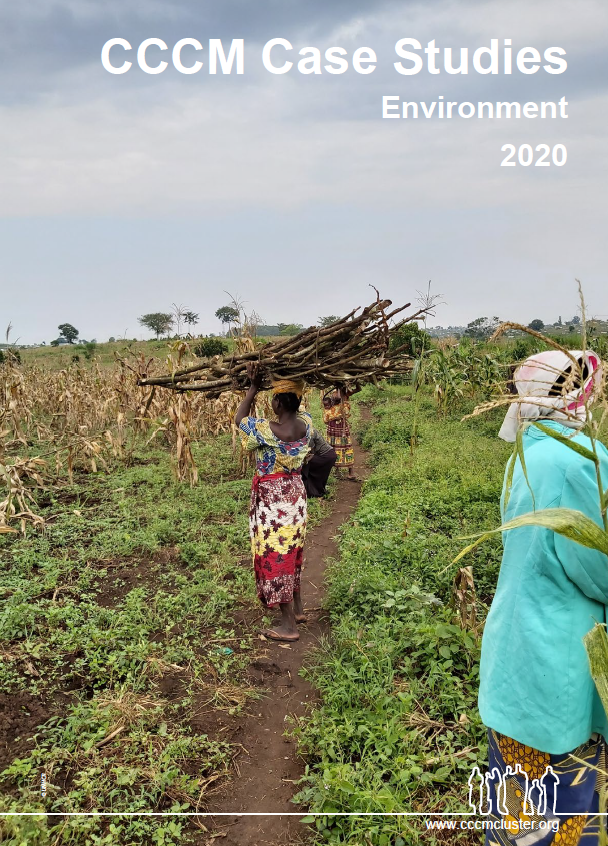The Global Camp Coordination and Camp Management (CCCM) Cluster is pleased to share with you the 2020 edition of the CCCM Case Studies. The CCCM Case Studies 2020 provides a collection of experiences and lessons learned, with concrete examples of the delivery of efficient and timely responses and a focus on adaptation to challenges presented by the COVID-19 pandemic.
The Minimum Standards for Camp Management, in line with Core Humanitarian Standard Commitment 16, aims to address the environmental challenges faced in CCCM contexts. Under the heading of Site Environment, two standards guide CCCM partners in implementing effective humanitarian response to assess environment risks alongside wider assessments and situational analyses to avoid exacerbating local vulnerabilities. Particularly in contexts where natural disasters or environmental degradation affect both displaced and host communities, it is essential for CCCM partners to ensure coordination and collaboration with national and local authorities and jointly lead programmes in addressing crucial environment challenges such as deforestation. Successful collaboration with national and local authorities is demonstrated in the Uganda context, where the Government of Uganda and humanitarian partners coordinated closely in implementing the “ReForest Project” to support energy resources in all refugee-hosting sites across the country.

